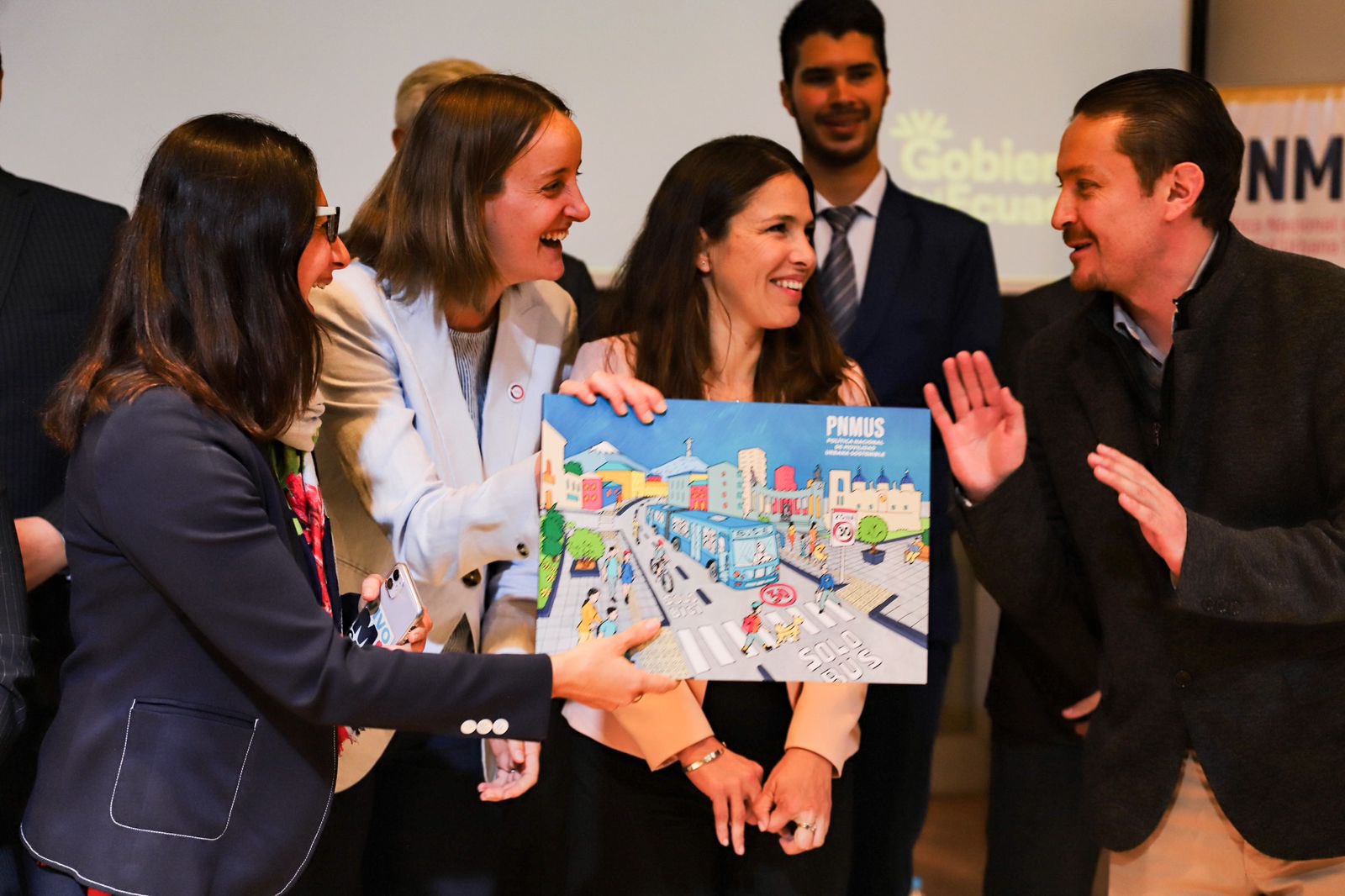This public policy will improve mobility conditions in Ecuador's cities, generating less environmental impact.
On June 21, the Ministry of Transportation and Public Works of the Government of Ecuador presented its National Sustainable Mobility Policy (PNMUS), which establishes strategies and actions to be implemented in the country's urban territories to generate sustainable urban mobility.
This initiative is part of the collaboration with the Euroclima program to support the government of Ecuador in reducing polluting emissions in the transportation sector and contribute to generating equity and accessibility in the country's cities through low-carbon mobility.
This project has the technical assistance of the French Development Agency (AFD) and a budget of 500,000 euros, provided by the European Union.
The PNMUS presentation event was held in the city of Quito and was attended by governmental institutional delegates, Decentralized Autonomous Governments (GAD), multilateral agencies, civil society organizations and citizens.

What is the PNMUS
By the year 2050, all cities in the country will be sustainably mobilized by previous successful processes; there will be new industries and new jobs; respect for the rights of all people will be in the citizens' conscience; Ecuador will be an example for the entire region.
PNMUS 2050 Vision
Ecuador's National Policy for Sustainable Urban Mobility (PNMUS) seeks to provide a legal framework and outlines a series of actions that will allow Decentralized Autonomous Governments (GAD) to improve mobility conditions in their territories, so that the travel of people and goods generates less environmental impact.
For this, the PNMUS defines strategic and transversal axes from which a series of objectives, strategies, impact goals and actions are derived, to be implemented by the National Intersectoral Council of the MUS, which will count with the participation of different ministries and municipalities. The priority axes of the PNMUS and its objectives are:
A. Public health and safe mobility: Includes a series of strategies to reduce the number of people killed and injured because of road crashes in urban areas in the short and medium term.
B. Climate change: Reduce the negative impact of mobility on the environment, reduce GHG emissions, promote the use of more efficient and sustainable modes of mobility, and incorporate climate change resilient infrastructure.
C. Inequality in the use of public road space: Reduce inequalities in the use of public road space caused by the prioritization of individual motorized transport in urban environments by incorporating sustainable urban mobility criteria in the planning instruments of the GADs.
D. PNMUS planning and research: Create an updated urban mobility database in a systematized and open way that allows the management and monitoring of PNMUS strategies in the short and medium term.

In terms of goals, the PNMUS proposes the following:
| Strategic axis | Impact goals |
| A. Public health and safe mobility | Decrease the traffic accident fatality rate, in situ, from 12.62 to 10.00 per 100,000 inhabitants by 2030. |
| B. Climate change | Reduce greenhouse gas (GHG) emissions from transportation in the Energy sector by 18%, from 19,844.53 to 16,272.51 Gg CO2 eq. |
| C. Inequity in the use of public road space | Municipal governments increase their operational capacity from 18.03 to 25.00 points on average. |
The PNMUS presents short (2025), medium (2030) and long term (2050) goals, so it will be divided into stages of coordination (2023 - 2025), implementation (2026 - 2030), progress (2031 - 2040), and consolidation (2041 - 2050).

About Euroclima
Euroclima is a program funded by the European Union and co-financed by the German federal government through the Federal Ministry for Economic Cooperation and Development (BMZ), as well as by the governments of France and Spain through the Ministry of Foreign Affairs, European Union, and Cooperation.
The Program's mission is to reduce the impact of climate change and its effects in 33 countries in Latin America and the Caribbean by promoting mitigation, adaptation, resilience, climate investment and biodiversity. To this end, it is implemented according to the "Spirit of Team Europe" under the synergistic work of seven agencies: Spanish Agency for International Development Cooperation (AECID), AFD Group: Agence Française de Développement (AFD)/ Expertise France (EF), Economic Commission for Latin America and the Caribbean (ECLAC), International and Ibero-American Foundation for Public Administration and Policies (FIIAPP), Deutsche Gesellschaft für Internationale Zusammenarbeit (GIZ) GmbH, the UN Environment Programme (UNEP) and the United Nations Development Programme (UNDP).
For more information:
This email address is being protected from spambots. You need JavaScript enabled to view it.

